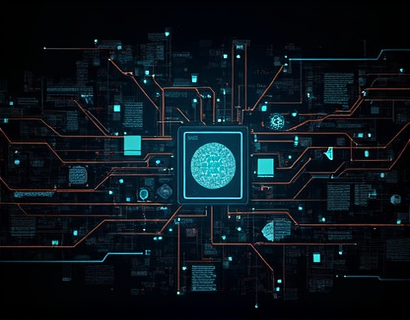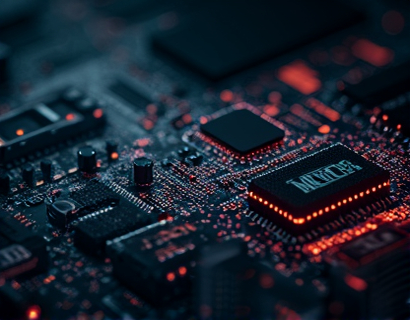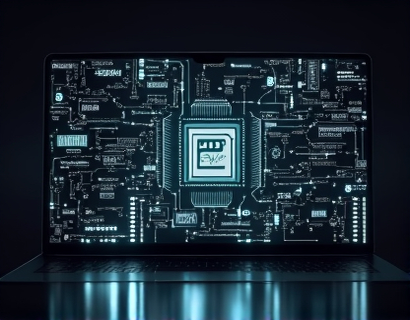Mastering Anonymous Operations: Advanced Software Solutions for Blockchain and AI Privacy Compliance
In the rapidly evolving landscape of technology, digital privacy has become a paramount concern for users engaging in blockchain and AI operations. The need for secure and anonymous digital transactions and interactions is more critical than ever, given the increasing regulatory scrutiny and the sensitivity of data handled in these domains. This article delves into the cutting-edge software solutions designed to master anonymous operations, focusing on creating and managing secure pseudonyms that ensure compliance with stringent regulatory standards.
The foundation of any robust privacy solution lies in the creation of secure pseudonyms. Pseudonyms serve as a layer of anonymity, allowing users to conduct transactions and interactions without revealing their true identities. Advanced software solutions have been developed to expertly craft and manage these pseudonyms, providing a balance between privacy and compliance. These tools are essential for tech users in the blockchain and AI space who are committed to maintaining their digital privacy while adhering to legal requirements.
One of the key features of these software solutions is their seamless integration capabilities. They are designed to work effortlessly with existing blockchain and AI systems, ensuring that the implementation of privacy-enhancing features does not disrupt ongoing operations. This seamless integration is crucial for businesses and developers who need to incorporate privacy measures without overhauling their entire infrastructure. By integrating these solutions, users can enjoy enhanced security and privacy without compromising on functionality or performance.
Enhanced security is another cornerstone of these advanced software solutions. In the realm of blockchain and AI, security threats are ever-present, and the risk of data breaches can have severe consequences. These solutions employ state-of-the-art encryption techniques and multi-layered security protocols to protect user data and pseudonyms. This ensures that even if a breach occurs, the sensitive information remains safeguarded. The use of advanced cryptographic algorithms and secure key management systems further fortifies the security framework, providing users with peace of mind.
Compliance with regulatory standards is a critical aspect of any digital operation. Governments and regulatory bodies around the world are increasingly imposing strict rules to protect user data and ensure transparency. Software solutions for anonymous operations are designed to meet these regulatory requirements, enabling users to operate within the legal framework. By automating compliance processes and providing detailed audit trails, these tools help organizations avoid legal pitfalls and maintain trust with their users.
One of the most significant advantages of these software solutions is their ability to facilitate anonymous digital transactions. In the blockchain space, transactions are typically transparent and traceable, which can pose privacy risks. Advanced pseudonymization techniques allow users to conduct transactions without revealing their true identities. This is achieved by generating unique, non-reversible pseudonyms that mask the user's real-world identity. These pseudonyms can be used across multiple transactions, providing a consistent layer of anonymity while still allowing for traceability within the blockchain network.
In the context of AI operations, data privacy is equally crucial. AI systems often rely on vast amounts of personal data to function effectively, raising concerns about data misuse and unauthorized access. Software solutions for creating and managing pseudonyms in AI environments ensure that user data is anonymized and aggregated, reducing the risk of individual identification. This not only protects user privacy but also enhances the integrity of AI models by preventing bias and ensuring data quality.
The process of creating a pseudonym involves several steps. First, the software generates a unique pseudonym based on a combination of cryptographic techniques and randomization algorithms. This pseudonym is then linked to the user's transaction or AI operation in a way that is reversible only by the user, using a private key. This key management system is a critical component, as it ensures that users retain control over their pseudonyms and can revoke or update them as needed. The use of decentralized key management solutions further enhances security by eliminating single points of failure.
Once a pseudonym is created, it can be used to sign transactions or provide input to AI systems. The pseudonym acts as a digital identifier that is independent of the user's real identity. This separation is vital for maintaining anonymity while still allowing for verification and accountability within the blockchain or AI ecosystem. For instance, in blockchain-based voting systems, pseudonyms can ensure that votes are cast anonymously but can still be verified for authenticity and uniqueness.
Another important feature of these software solutions is their support for dynamic pseudonym generation. This means that pseudonyms can be created and discarded on a per-transaction basis, adding an extra layer of anonymity. This approach makes it difficult for adversaries to track user activity across multiple transactions, thereby enhancing overall privacy. Dynamic pseudonyms are particularly useful in scenarios where users need to maintain a level of anonymity over an extended period, such as in long-term AI collaborations or continuous blockchain-based services.
Interoperability is another key aspect of these advanced software solutions. As the blockchain and AI landscapes are characterized by a multitude of platforms and protocols, the ability to operate seamlessly across different systems is essential. These solutions are designed to be interoperable, allowing users to create and manage pseudonyms that can be used across various blockchain networks and AI frameworks. This flexibility ensures that users are not tied to a specific ecosystem and can leverage the benefits of multiple technologies.
User-friendly interfaces and intuitive design are also critical components of these software solutions. While the underlying technology is complex, the tools are crafted to be accessible to users with varying levels of technical expertise. This inclusivity ensures that privacy-enhancing features are not limited to tech-savvy individuals but are available to a broader audience. Detailed documentation, tutorials, and customer support further enhance the user experience, making it easier for users to get started and maximize the benefits of these solutions.
The impact of these software solutions extends beyond individual users to the broader ecosystem. By promoting privacy and compliance, these tools foster a more trustworthy and secure environment for all participants in the blockchain and AI space. This trust is essential for the widespread adoption of these technologies, as it addresses one of the primary concerns of users and organizations alike. As more entities recognize the importance of digital privacy, the demand for robust privacy solutions is likely to grow, driving innovation and further advancements in this field.
In conclusion, mastering anonymous operations in the blockchain and AI domains requires sophisticated software solutions that can create and manage secure pseudonyms. These tools not only enhance user privacy but also ensure compliance with regulatory standards, providing a comprehensive approach to digital security. By integrating these advanced solutions, tech users can navigate the complex landscape of blockchain and AI with confidence, knowing that their privacy and data are well-protected.










































